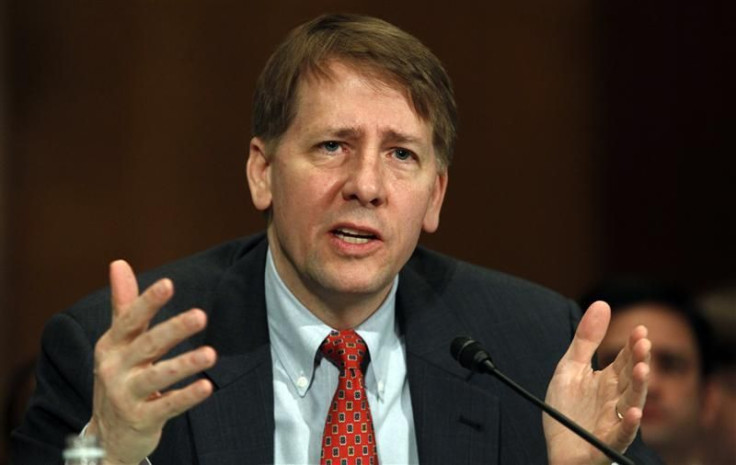CFPB Will Face Senate Banking Committee Next Week, Will Likely Face Scrutiny On Collecting Data Regarding Americans' Credit Habits

[April 19, 2013 UPDATE] -- Lisa Rice, vice president of the National Fair Housing Alliance, responded to criticisms over the CFPB's efforts to acruie data on Americans' use of credit:
“Just wondering why the bankers are mad that the CFPB is beginning to do something that they have done for decades? ... Are they upset because now the CFPB will have the same data that they have and can better evaluate some of the arguments they (the bankers) make using this ‘proprietary’ data? ... The current environment is one in which the industry has information and data that no one else has — including the regulators. The regulators get to see what the industry is willing to share with them. This new development is indeed a game-changer. Just wondering why the pot is calling the kettle black.” [From POLITICO]
---
Richard Cordray, head of the 21-month-old Consumer Financial Protection Bureau, will be giving his semiannual report to the Senate Banking Committee on Tuesday, and he’s likely to face a few questions regarding the more than $20 million the agency is spending to buy data on how Americans use credit.
“Just not sure which is more problematic: the data grab or the expenditure,” an anonymous senior banking industry official told Politico.
The agency, founded in the wake of the mortgage meltdown and the 2010 Dodd-Frank Wall Street Reform and Consumer Protection Act, contends that to carry out its duties, it needs data, including information from lenders as well as companies that provide related data and analytical tools, such as Dublin-based Experian plc (LON:EXPN).
‘‘Do they need the reams and reams and reams of data we’re having to provide to them?’’ Susan Faulkner, senior vice president at Bank of America, asked in a recent interview, with Bloomberg. ‘‘Don’t we have to find a healthier balance here?’’
According to Cordray, the answer is yes, but next week he will likely have to be more specific than the CFPB has been so far as to why the agency wants the data and what it intends to do with it.
The CFPB is no friend to the banking industry. Almost a year to the day of its formation, the watchdog slapped Capital One Financial Corp. (NYSE:COF), the country’s 10th largest bank, with a $210 million fine, on charges it used deceptive marketing tactics to lure consumers into buying payment protection and credit monitoring services along with their credit cards. The McLean, Va.-based bank paid the fine but wasn't compelled to admit any wrongdoing.
© Copyright IBTimes 2025. All rights reserved.






















